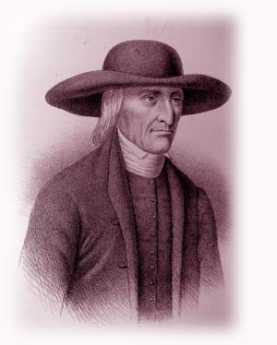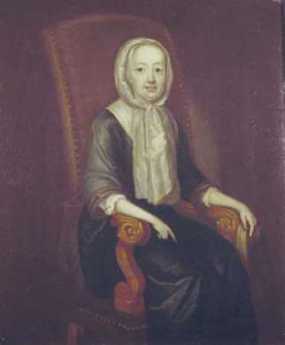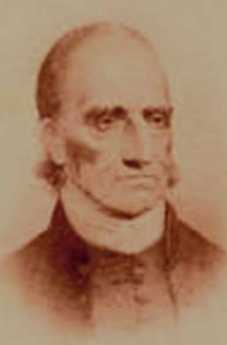Related Topics
Religious Philadelphia
William Penn wanted a colony with religious freedom. A considerable number, if not the majority, of American religious denominations were founded in this city. The main misconception about religious Philadelphia is that it is Quaker-dominated. But the broader misconception is that it is not Quaker-dominated.
Quakers: The Society of Friends
According to an old Quaker joke, the Holy Trinity consists of the fatherhood of God, the brotherhood of man, and the neighborhood of Philadelphia.
Quakers: All Alike, All Different
Quaker doctrines emerge from the stories they tell about each other.
Revisionist Themes
In taking a comprehensive view of a city, an author sometimes makes observations which differ from the common view. Usually with special pride, sometimes a little sullen.
The No-Doctrine Doctrine

|
| quaker |
Although Quakers have long been famous for good relations with the Indians, both groups strongly prizing simplicity and keeping your word, few Indians converted to Quakerism. Indians would attend the silent meetings and listen respectfully, but in the end, Christian converts were far more likely to convert to the Moravian Church. To resist defining your common beliefs creates automatically a problem for explaining what you believe. It becomes acceptable to believe a wide range of things, but it is also acceptable to believe very little. Not surprisingly, the two great religious schisms of the Quakers have broken their unity on just this point.

|
| A History |
The first great Quaker schism was created by one George Keith (1638-1716), who was born a Presbyterian and died an ordained Episcopalian. For several decades, however, Keith was one of the foremost leaders of the Pennsylvania Quakers, partly as a result of being just about the best-educated man of the Colony. His leadership, however, led him to crave a more defined set of Quaker doctrines, and when he carried this idea too vigorously, he eventually encountered implacable opposition which in time caused him and his considerable number of followers to be expelled from the Society of Friends. (George Keith should not be confused with Sir William Keith, whom Hannah Penn appointed as governor of Pennsylvania in 1717.)

|
| Elias Hicks |
The first great schism was thus about whether there might be too little defined doctrine in Quakerism. The second great schism, by contrast, grew out of the feeling there was too much doctrine. Led by Elias Hicks in 1830, the Hick sites split off from mainstream Quakerism in a quest for more simplicity, less religiosity, more silent contemplation of the Inner Light. In a sense, the outward show of protest in the black hats, plain dress, the plain speech had provoked a reaction that these things were no longer simple, they were ostentatious. Too many people were being "eldered", too many people were being "read out of the meeting" for violating doctrinal rules.
Curiously, both rebels were cast out, but over each following century the church as a whole gradually adopted what was largely their view of things. After Keith, Quakerism became more rigid and formalized. After Hicks, it became more mystical and free-thinking.
By insisting that in spite of turmoil it caused no doctrine was to be defined, Quakers have edged into the negative position of defining what they are not. Unlike the early sects of Christianity, Quakers have discarded the hope of miraculous divine intervention as a reason to behave in a Friendly Christian way. No one is apparently going to revive your bones from the tomb, feed your multitudes with forty loaves, or descend from Heaven and drive your enemies into the sea. Neither a later reward in Heaven nor a forthcoming everlasting punishment in Hell can be regarded as either very likely or much of an incentive to good behavior. Other religions may believe these things and might even turn out to be right, but Quakers feel the unembellished Golden Rule is a sufficiently understandable motive for conduct.
And gentle indirection is often a better way to persuade others than thundering oratory. The story is told of a visitor who found himself in a Quaker gathering and made polite conversation by asking what the Quaker position was on the Trinity. A sweet old gentleman is said to have smiled and said, "We believe in the following Trinity: The brotherhood of man, the fatherhood of God -- and the neighborhood of Philadelphia."
Originally published: Wednesday, June 21, 2006; most-recently modified: Friday, June 07, 2019